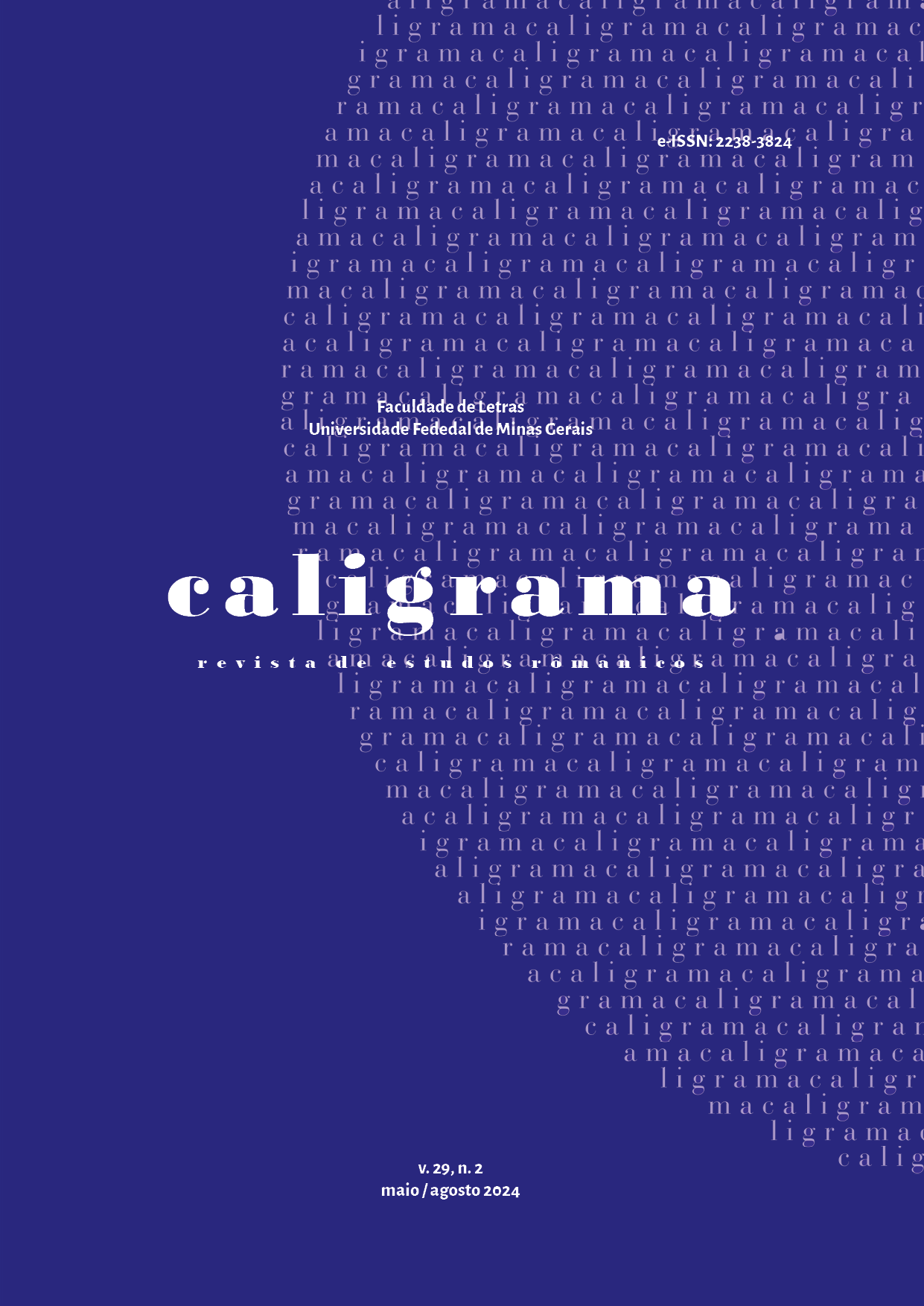Un ailleurs à soi and the Translation of Elsewhere
DOI:
https://doi.org/10.17851/2238-3824.29.2.97-109Keywords:
Emmelie Prophète, literary translation, queer diaspora, Francophone literatureAbstract
In recent years, there has been an increase in the participation of the LGBTQIA+ community in cultural productions overall. In literature, this is observed not only in the increase of publications by authors belonging to this community but also in the growing interest of publishers and writing professionals in translating foreign works that represent it. However, this growth does not always correspond to an equal participation of this community in society, nor to a reduction in violence against this group. In many French-speaking countries, even though the rights reserved for the LGBTQIA+ community are legally ensured, the desire for a life elsewhere often emerges as a path to freedom. This article proposes reflections on the translational choices of a novel that represents such desire: Un ailleurs à soi, by Haitian writer Emmelie Prophète. Published in 2018, the novel themes the romantic relationship between two women in Port-au-Prince, and the almost generalized desire of its inhabitants for diaspora. Here, it is shown the role that women’s writing, and feminist translation can play in breaking the silences that surround women loving women in oppressive realities. Considering the growth of works that represent the reality of socio-historically excluded groups, it is believed that translating such a novel and discussing it in the current Brazilian context can contribute to the participation of the LGBTQIA+ community in society, aiding in the increase of visibility and inclusion of the community.
Downloads
References
BUTLER, Judith. Gender Trouble: Feminism and the Subversion of Identity. New York: Routledge, Taylor & Francis Group, 2006.
CAMPBELL, Kofi Omoniyi Sylvanus. The Queer Caribbean Speaks: Interviews with Writers, Artists, and Activists. New York: Palgrave Macmillan, 2014.
CARLOS, Lígia Medina et al. Palavras que atravessam mares e oceanos: entrevista com Gisèle Pineau. Revista de Literatura, História e Memória, [s. l.], v. 19, n. 34, p. 311-335, 2024. DOI: https://doi.org/10.48075/rlhm.v19i34.32044.
CHÉHATA, Chérine. Voix et voies de l’émancipation de la femme dans le roman francophone contemporain d’Afrique noire. In: PARE, Daouda; YAOUDAM, Élisabeth (Ed.). Métamorphoses féminines : émergence et évolutions dans les littératures francophones contemporaines. Paris : Éditions des Archives contemporaines, 2018. p. 151-159.
COLLINS, Patricia Hill. Preface: On Translation and Intellectual Activism. In: CASTRO, Olga; ERGUN, Emek (Ed.). Feminist Translation Studies: Local and Transnational Perspectives. New York: Routledge, 2017. (Série Routledge Advances in Translation and Interpreting Studies). p. xi–xvi.
CORBET, Alice. Le kouraj d’être soi en Haïti. HAL open science, [s. l.], 15 set. 2013. Disponível em: https://shs.hal.science/hal-03024632/. Acesso em: 16 jul. 2024.
DIABATE, Naminata. Genealogies of Desire, Extravagance, and Radical Queerness in Frieda Ekotto’s Chuchote Pas Trop. Research in African Literatures, v. 47, n. 2, p. 46-65, Summer 2016. Disponível em: https://muse.jhu.edu/article/622195. Acesso em: 16 jul. 2024.
EKOTTO, Frieda. Frieda Ekotto : Pour une critique endogène sur les représentations visuelles et littéraires de l’identité lesbienne africaine. [Entrevista cedida a] Beti Ellerson. African Women in Cinema. [S. l.] 13 nov. 2013. Disponível em: https://africanwomenincinema.blogspot.com/2013/11/frieda-ekotto-pour-une-critique.html. Acesso em: 25 mar. 2024.
EKOTTO, Frieda. Framing Homosexual Identities in Cameroonian Literature. Tydskrif vir Letterkunde, [s. l.], v. 53, n. 1, p. 128–137, 1 abr. 2016. DOI: http://dx.doi.org/10.4314/tvl.v.53i1.8.
FACCHIN, Carolina Kuhn. Do âmago: uma tradução queerizante de She called me woman: Nigeria’s queer women speak. 2021. Dissertação (Mestrado em Letras) – Setor de Ciências Humanas, Universidade Federal do Paraná, Curitiba, 2021.
FLOTOW, Luise von. Feminist Translation: Contexts, Practices and Theories. Traduction, terminologie, rédaction, v. 4, n. 2, p. 69-84, 1991. DOI: https://doi.org/10.7202/037094ar.
FORTIER, Anne-Marie. Queer diaspora. In: RICHARDSON, Diane; SEIDMAN, Steven (Ed.). Handbook of Lesbian and Gay Studies. London: Sage Publications, 2002. p. 183-197.
GLISSANT, Édouard. Le discours antillais. Paris: Gallimard, 1997.
LARGE, Sophie. Les spécificités du féminisme lesbien décolonial caribéen au prisme de la littérature : les cas de Yolanda Arroyo Pizarro et Rita Indiana Hernández. Amerika, n. 16, 1 jul. 2017. DOI: https://doi.org/10.4000/amerika.8106.
MAP of Countries that Criminalise LGBT People. Human Dignity Trust, Londres, c2024. Disponível em: https://www.humandignitytrust.org/lgbt-the-law/map-of-criminalisation/?type_filter_submitted=&type_filter%5B%5D=death_pen_applies. Acesso em: 20 abr. 2024.
PROPHÈTE, Emmelie. Un ailleurs à soi. Montréal, QC: Mémoire d’encrier, 2018.
SPURLIN, William. Queering Translation: Rethinking Gender and Sexual Politics in the Spaces Between Languages and Cultures. In: EPSTEIN, B. J.; GILLETT, Robert (Ed.). Queer in translation. New York: Routledge, Taylor & Francis Group, 2017. (Série Routledge Advances in Translation and Interpreting Studies). p. 172-183.
MÉMOIRE d’Encrier. Maison d’édition fondée en 2003, c2024. Disponível em: https://memoiredencrier.com/. Acesso em: 20 abr. 2024.
VALENS, Keja. Desire between Women in Caribbean Literature. Basingstoke: Palgrave Macmillan, 2013.
VENUTI, Lawrence. The Translator’s Invisibility: a History of Translation. 3. ed. New York: Routledge, 2017.
WOOLF, Virginia. Um teto todo seu. Tradução: Bia Nunes De Souza. Rio de Janeiro: Tordesilhas, 2014.





